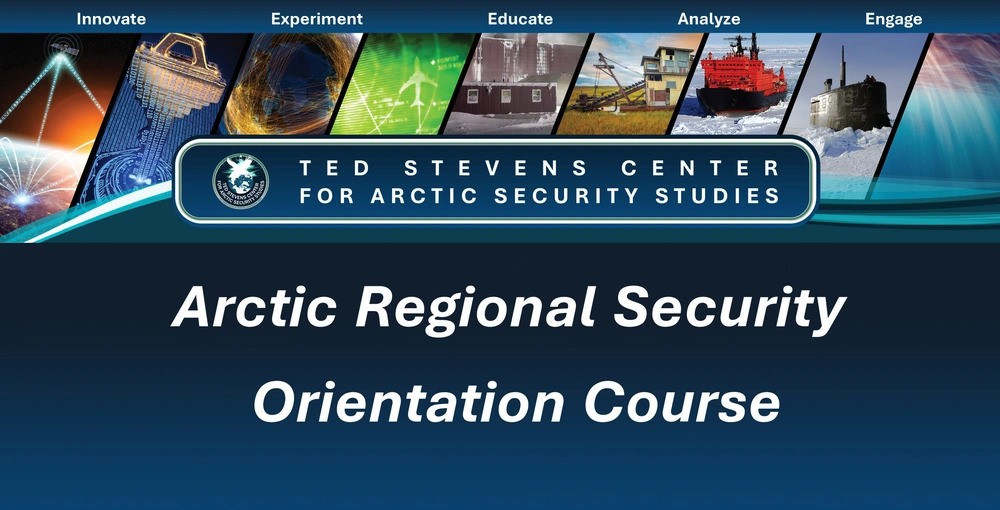The five-day virtual course drew 122 participants, including representatives from Canada, France, and Portugal, as well as key members from the Office of the Secretary of Defense. Designed to provide an entry-level baseline knowledge of Arctic security issues, ARSOC featured lectures, breakout discussions, and a culminating capstone exercise, all aimed at equipping participants with a comprehensive understanding of historical, environmental, geopolitical, and strategic dynamics in the Arctic region.
The course opened with remarks from Randy “Church” Kee, Director of the TSC, setting the stage for an engaging week of learning and dialogue. Matthew Bell, Dean of the School of Arctic Security Studies, provided an introductory presentation outlining the objectives of ARSOC: preparing Department of Defense personnel for Arctic assignments, fostering collaboration among Arctic security practitioners, and proposing cooperative solutions to regional security challenges. “Our intention is to build intellectual curiosity and critical thinking for the Arctic Circumpolar region,” Bell explained.
Throughout the week, participants explored the intricacies of Arctic security. The first two days focused on foundational topics such as defining the Arctic region, understanding its physical environment, and examining the impacts of change in the Arctic. Subsequent sessions addressed natural resources, maritime shipping, and the legal frameworks governing the Arctic. The agenda also explored the roles of allied and partner nations, with a panel discussion on NATO enlargement and its implications for Arctic stability drawing particular interest.
Integrated deterrence emerged as a key theme, with in-depth discussions on U.S., Russian, and Chinese strategies in the Arctic. Participants were encouraged to engage critically and collaboratively during breakout sessions and panel discussions, which provided opportunities to analyze security dynamics from multiple perspectives. By midweek, the course shifted to address the operational challenges of managing risk and complexity in multi-domain Arctic operations.
As the course concluded, Carisa Nietsche, Arctic Policy Advisor for the Office of Arctic Global Resilience, delivered closing remarks. Nietsche’s reflections offered a comprehensive overview of the Department of Defense’s Arctic strategy and the broader opportunities and challenges facing the region. Bell praised her contributions, saying, “Carisa provided an exceptional recap of the challenges we’re working to address and the opportunities we have moving forward. Her insights were intellectually stimulating and valuable for all participants.”
On the final day, participants showcased their newfound knowledge during the capstone exercise, where they presented actionable solutions to Arctic security dilemmas. Bell commended the group’s enthusiasm and dedication: “Your passion, candor, and curiosity were evident throughout the week. The presentations were some of the best we’ve seen, bringing together geophysical and geostrategic elements with remarkable clarity and depth.”
The successful delivery of ARSOC was made possible by the hard work of the TSC’s IT and Multimedia teams, whose efforts ensured a seamless virtual experience. “This was an incredible milestone for us,” Bell said. “The enhanced technology infrastructure allowed us to connect participants from across the globe and set a new standard for our courses.”
Looking ahead, the TSC plans to build on this momentum with upcoming sessions of ARSOC scheduled for Feb. 10-14, April 21-25, and Oct. 27-31. As ARSOC continues to grow, the program remains dedicated to fostering collaboration among security practitioners and promoting peaceful, cooperative solutions in the Arctic.
For more information about ARSOC or to register for future sessions, visit www.tedstevensarcticcenter.org.

